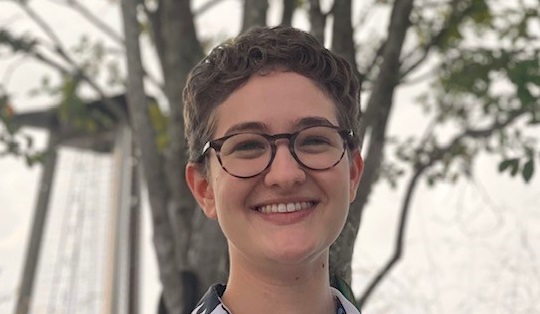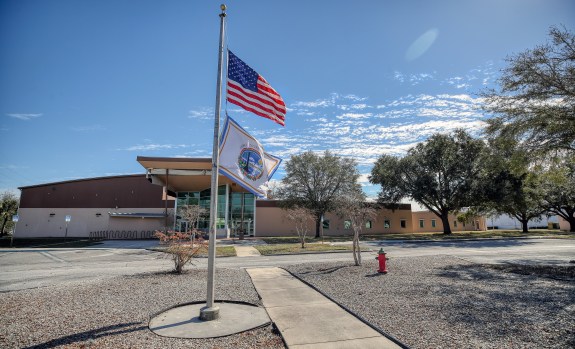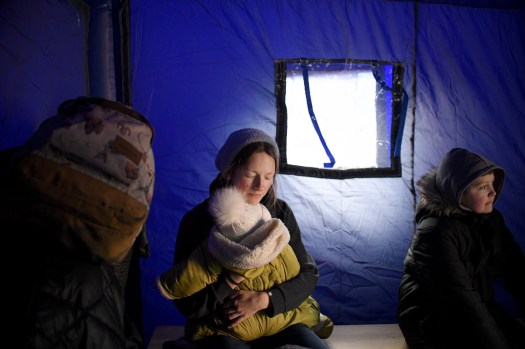At Winter Park High School, my teacher dragged microscopes into our classroom, which is how I first touched one. I became fascinated with biology after seeing those fragile onion cells up close.
As a doctoral student at the University of Pennsylvania, I research the process by which a zebrafish’s fertilized egg grows into the 2-inch striped fish you see at Petco. Since zebrafish and humans share an astounding 70% of our genes, studying this small fish is truly an attempt to understand ourselves.
The fact that all fish and human embryos begin as a single, symmetrical cell fascinates me. This single cell keeps dividing, producing new cells that move around and choose to become red blood cells, neurons, and other cell types as they reorganize into layers and organs. The signals that assist these cells in determining what to be at the appropriate time and location are the subject of my lab’s research.
My research, which you may refer to as basic science, is to identify the fundamental principles that nature uses to develop an embryo. Why? These early embryonic signals are shared by humans and fish, and various malignancies can use them against their victims. Therefore, understanding the development of fish embryos can help us better comprehend birth abnormalities, early pregnancy loss, and cancer treatment. Federal science funding, which is currently in jeopardy, is what makes this study possible.
Funded by the government, basic science fuels healing. Since this early research won’t necessarily result in a lucrative treatment or patent, private corporations typically avoid sponsoring it. However, fundamental science provides the foundation for getting there and can produce novel, surprising outcomes.
For instance, the first individualized gene therapy, which gives a baby a chance to survive a life-threatening genetic condition, was just developed as a result of research that started decades ago to understand how microorganisms fight against viruses.
The local economy is also driven by federal financing for science. Last year, the National Science Foundation and the National Institutes of Health (NIH) jointly awarded about $43 million to the Orlando region alone. More Orlando residents will have money to spend locally thanks to this financing, which also supports jobs and therapeutic research.
However, all of that and more are at risk due to the newly proposed reductions in federal funding for science. According to the current administration, 37% of the NIH’s budget should be slashed, and research colleges like UCF will receive less money for indirect costs, which include things like building maintenance, support staff for clinical trials, and the disposal of hazardous waste.
As of right now, the NIH is the world’s biggest public supporter of biomedical research, supporting both fundamental science and studies into particular illnesses or treatments. Nearly all new drugs authorized between 2010 and 2019 were funded by the NIH. Drug discovery will stall without this funding. As Alzheimer’s grants are jeopardized, the already difficult path of diagnosing and treating Alzheimer’s disease will become even more difficult. Clinical trials and research aimed at curing childhood cancer are in jeopardy. The list is endless.
Additionally, other organizations that are important to many Floridians are being targeted. The planned 47% reduction in NASA’s science budget would result in the sudden termination of years-old programs. At NASA, workforce reductions have already started. With some forecasting already affected, cuts to the National Oceanic and Atmospheric Administration (NOAA) will severely impair its meteorological and climate research divisions just before hurricane season.
These cuts will cost us money overall. Every $1 the government invests on science nationwide boosts the economy by $1.71. The cumulative effect of these measures will cost us $10 billion annually.
Twenty years from now, we might even be able to use my zebrafish to help us discover new things, learn more about the world around us, and develop remedies.
Although a budget preserving research is not yet law, the Senate Committee on Appropriations just voted against these draconian cuts. Now is the moment to join me in urging our senators and representatives in the House to support federal funding for science. It’s too precious to cut.
Ari Geller, a developmental biology PhD candidate at the University of Pennsylvania, was born and reared in the Orlando region.












Commentary: As kids return to school, Florida continues to lead in education | Paul Renner